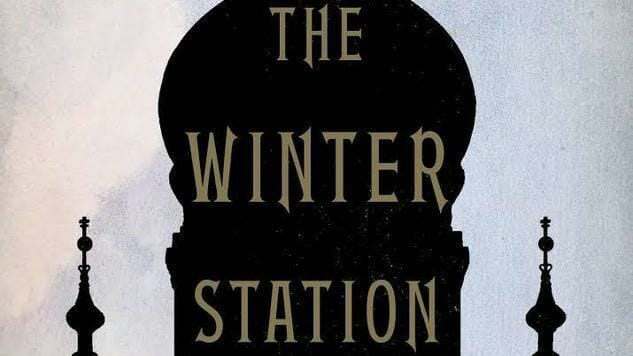Jody Shields’ The Winter Station Unleashes a Plague, Tapping Into Society’s Oldest Fear
Books Features Jody Shields
Jody Shields’ entry into the canon of pathogen literature, The Winter Station, exposes the agonizing anxiety only one type of enemy can conjure. What Shields evokes in her greatest passages, as her czarist Baron battles an epidemic in turn of the century Harbin, is a fear that pours from the temples: the recognition that we can be set against a swift and terrible force majeure, the scythe of God.
The Harbin of 1910 is an international city from which Imperial Russia oversees the Chinese Eastern Railway. Russian and Japanese soldiers stand tensely nearby following the Russo-Japanese war; Chinese citizens are condemned to menial work in their own country; businesses from as far abroad as America have set up shop. It’s a precarious place that proves barely habitable once the winter begins, and it’s completely undone by plague.
 The Baron’s all-encompassing paranoia feels particularly acute now, as the U.S. battles one of the worst flu seasons in almost a decade. Seemingly healthy specimens are not safe this year; to ignore the sniffles now could mean hospitalization or worse. The result is a claustrophobia born less of walls and more of air; each person around you is now a potential harbinger of the pale horse.
The Baron’s all-encompassing paranoia feels particularly acute now, as the U.S. battles one of the worst flu seasons in almost a decade. Seemingly healthy specimens are not safe this year; to ignore the sniffles now could mean hospitalization or worse. The result is a claustrophobia born less of walls and more of air; each person around you is now a potential harbinger of the pale horse.
The Winter Station’s Baron has it worse, of course. Shields pitches our fears into an extremely high gear, the kind which one can only pray to avoid. Her characters move about a field of ice and snow, every rise and fall of the chest pumping pure death, fetid fountains of pestilence gathered around every stove, though freezing to death may be the better option. The rule of law is meaningless, states obsolete; plague knows no borders, only prey.
What Shields—and this flu season—taps is an atavistic abhorrence at being reminded of our throne’s fragility. We are not only on this world, but we alone own it. And of the many enemies we have, we’ve roundly contained—even practically eradicated—some of our most dangerous, including smallpox, so profoundly devastating it has been worshipped as a goddess. But the victory is not total, the conquest—while among our finest achievements as a species—not complete. There are still pathogens out there, super-predators of humanity feeding off of our biological matrix; invading, hijacking, proliferating, rending, liquefying, then leaping to their next amplification ground. What’s left is salted Carthage, piled on carts, in fields and in mass graves.
The Winter Station’s plague is a magnitude worse than what we are facing in this flu season, but the vein it—and other works of pathogen literature—taps is older than recorded history. It is patient, and it will remind us of its presence again, roaring out of the jungle, the steppe, the city street, like the vengeance of a goddess herself.
B. David Zarley is a freelance journalist, essayis, and book/art critic based in Chicago. A former book critic for The Myrtle Beach Sun News, he is a contributing reporter to A Beautiful Perspective and has been seen in The Atlantic, Hazlitt, Jezebel, Chicago, Sports Illustrated, VICE Sports, Creators, Sports on Earth and New American Paintings, among numerous other publications. You can find him on Twitter or at his website.